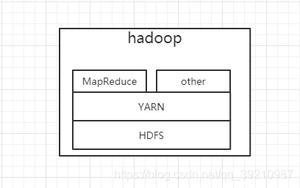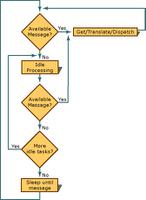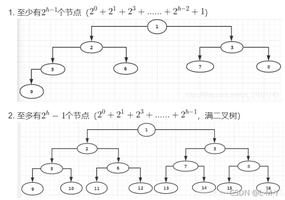一个工业级、跨平台、轻量级的tcp网络服务框架:gevent

作为公司的公共产品,经常有这样的需求:就是新建一个本地服务,产品线作为客户端通过 tcp 接入本地服务,来获取想要的业务能力。
与印象中动辄处理成千上万连接的 tcp 网络服务不同,这个本地服务是跑在客户机器上的,Win32 上作为开机自启动的 windows 服务运行;
Linux 上作为 daemon 在后台运行。总的说来就是用于接收几个产品进程的连接,因此轻量化是其最重要的要求,在这个基础上要能兼顾跨平台就可以了。
其实主要就是 windows,再兼顾一点儿 linux。
考察了几个现有的开源网络框架,从 ACE 、boost::asio 到 libevent,都有不尽于人意的地方:
a) ACE:太重,只是想要一个网络框架,结果它扒拉扒拉一堆全提供了,不用还不行;
b) boost::asio:太复杂,牵扯到 boost 库,并且引入了一堆 c++ 模板,需要高版本 c++ 编译器支持;
c) libevent:这个看着不错,当时确实用这个做底层封装了一版,结果发版后发现一个比较致命的问题,导致在防火墙设置比较严格的机器上初始化失败,这个后面我会详细提到。
其它的就更不用说了,之前也粗略看过陈硕的 muddo,总的感觉吧,它是基于其它开源框架不足地方改进的一个库,有相当可取的地方,但是这个改进的方向也主要是解决更大并发、更多连接,不是我的痛点,所以没有继续深入研究。
好了,与其在不同开源框架之间纠结,不如自己动手写一个。
反正我的场景比较固定,不用像它们那样面面俱,我给自己罗列了一些这个框架需要支持基本的功能:
1)同步写、异步读;
2)可同时监听多路事件,基于 1)这里只针对异步 READ 事件(包含连接进入、连接断开),写数据是同步的,因而不需要处理异步 WRITE 事件;
3)要有设置一次性和周期性定时器的能力 (业务决定的);
4)不需要处理信号 (windows 上也没信号这一说,linux 自己搞搞 sigaction 就好啦);
……
虽然这个框架未来只会运行在用户的单机上,但是我不希望它一出生就带有性能缺陷,所以性能平平的 select 没能进入我的法眼,我决定给它装上最强大的心脏:
Windows 平台: iocp
Linux 平台:epoll
ok,从需求到底层技术路线,貌似都讲清楚了,依照 libevent 我给它取名为 gevent,下面我们从代码级别看下这个框架是怎么简化 tcp 服务搭建这类工作的。
首先看一下这个 tcp 服务框架的 sample:
svc_handler.h
1 #include "EventBase.h"2 #include "EventHandler.h"
3
4class GMyEventBase : public GEventBase
5{
6public:
7 GEventHandler* create_handler ();
8};
9
10
11class svc_handler : public GJsonEventHandler
12{
13public:
14virtual ~svc_handler () {}
15virtualvoid on_read_msg (Json::Value const& val);
16 };
epoll_svc.cpp
1 #include <stdio.h>2 #include "svc_handler.h"
3 #include <signal.h>
4
5GMyEventBase g_base;
6 GEventHandler* GMyEventBase::create_handler ()
7{
8returnnew svc_handler;
9}
10
11void sig_int (int signo)
12{
13 printf ("%d caught
", signo);
14 g_base.exit (1);
15 printf ("exit ok
");
16}
17
18int main (int argc, char *argv[])
19{
20if (argc < 2)
21 {
22 printf ("usage: epoll_svc port
");
23return -1;
24 }
25
26 unsigned short port = atoi (argv[1]);
27
28#ifndef WIN32
29struct sigaction act;
30 act.sa_handler = sig_int;
31 sigemptyset(&act.sa_mask);
32 act.sa_flags = SA_RESTART;
33if (sigaction (SIGINT, &act, NULL) < 0)
34 {
35 printf ("install SIGINT failed, errno %d
", errno);
36return -1;
37 }
38else
39 printf ("install SIGINT ok
");
40#endif
41
42// to test small message block
43if (g_base.init (/*8, 10*/) < 0)
44return -1;
45
46 printf ("init ok
");
47do
48 {
49if (!g_base.listen (port))
50 {
51 g_base.exit (0);
52 printf ("exit ok
");
53break;
54 }
55
56 printf ("listen ok
");
57 g_base.run ();
58 printf ("run over
");
59 } while (0);
60
61 g_base.fini ();
62 printf ("fini ok
");
63
64 g_base.cleanup ();
65 printf ("cleanup ok
");
66return0;
67 }
这个服务的核心是 GMyEventBase 类,它使用了框架中的 GEventBase 类,从后者派生而来,
只改写了一个 create_handler 接口来提供我们的事件处理对象 svc_handler,它是从框架中的 GEventHandler 派生而来,
svc_handler 只改写了一个 on_read_msg 来处理 Json 格式的消息输入。
程序的运行就是分别调用 GMyEventBase(实际上是GEventBase) 的 init / listen / run / fini / cleaup 方法。
而与业务相关的代码,都在 svc_handler 中处理:
svc_handler.cpp
1 #include "svc_handler.h"2
3void svc_handler::on_read_msg (Json::Value const& val)
4{
5int key = val["key"].asInt ();
6 std::string data = val["data"].asString ();
7 printf ("got %d:%s
", key, data.c_str ());
8
9 Json::Value root;
10 Json::FastWriter writer;
11 root["key"] = key + 1;
12 root["data"] = data;
13
14int ret = 0;
15 std::string resp = writer.write(root);
16 resp = resp.substr (0, resp.length () - 1); // trim tailing
17if ((ret = send (resp)) <= 0)
18 printf ("send response failed, errno %d
", errno);
19else
20 printf ("response %d
", ret);
21 }
它期待 Json 格式的数据,并且有两个字段 key(int) 与 data (string),接收数据后将 key 增 1 后返回给客户端。
再来看下客户端 sample:
clt_handler.h
1 #include "EventBaseAR.h"2 #include "EventHandler.h"
3
4class GMyEventBase : public GEventBaseWithAutoReconnect
5{
6public:
7 GEventHandler* create_handler ();
8};
9
10
11class clt_handler : public GJsonEventHandler
12{
13public:
14virtual ~clt_handler () {}
15#ifdef TEST_TIMER
16virtualbool on_timeout (GEV_PER_TIMER_DATA *gptd);
17#endif
18virtualvoid on_read_msg (Json::Value const& val);
19 };
epoll_clt.cpp
1 #include <stdio.h>2 #include "clt_handler.h"
3 #include <signal.h>
4
5//#define TEST_READ
6//#define TEST_CONN
7//#define TEST_TIMER
8
9GMyEventBase g_base;
10 GEventHandler* GMyEventBase::create_handler ()
11{
12returnnew clt_handler;
13}
14
15
16int sig_caught = 0;
17void sig_int (int signo)
18{
19 sig_caught = 1;
20 printf ("%d caught
", signo);
21 g_base.exit (0);
22 printf ("exit ok
");
23}
24
25void do_read (GEventHandler *eh, int total)
26{
27char buf[1024] = { 0 };
28int ret = 0, n = 0, key = 0, err = 0;
29char *ptr = nullptr;
30while ((total == 0 || n++ < total) && fgets (buf, sizeof(buf), stdin) != NULL)
31 {
32// skip
33 buf[strlen(buf) - 1] = 0;
34//n = sscanf (buf, "%d", &key);
35 key = strtol (buf, &ptr, 10);
36if (ptr == nullptr)
37 {
38 printf ("format: int string
");
39continue;
40 }
41
42 Json::Value root;
43 Json::FastWriter writer;
44 root["key"] = key;
45// skip space internal
46 root["data"] = *ptr == "" ? ptr + 1 : ptr;
47
48 std::string req = writer.write (root);
49 req = req.substr (0, req.length () - 1); // trim tailing
50if ((ret = eh->send (req)) <= 0)
51 {
52 err = 1;
53 printf ("send %d failed, errno %d
", req.length (), errno);
54break;
55 }
56else
57 printf ("send %d
", ret);
58 }
59
60if (total == 0)
61 printf ("reach end
");
62
63if (!err)
64 {
65 eh->disconnect ();
66 printf ("call disconnect to notify server
");
67 }
68
69// wait receiving thread
70//sleep (3);
71// if use press Ctrl+D, need to notify peer our break
72}
73
74#ifdef TEST_TIMER
75void test_timer (unsigned short port, int period_msec, int times)
76{
77int n = 0;
78 GEventHandler *eh = nullptr;
79
80do
81 {
82 eh = g_base.connect (port);
83if (eh == nullptr)
84break;
85
86 printf ("connect ok
");
87void* t = g_base.timeout (1000, period_msec, eh, NULL);
88if (t == NULL)
89 {
90 printf ("timeout failed
");
91break;
92 }
93else
94 printf ("set timer %p ok
", t);
95
96// to wait timer
97do
98 {
99 sleep (400);
100 printf ("wake up from sleep
");
101 } while (!sig_caught && n++ < times);
102
103 g_base.cancel_timer (t);
104 } while (0);
105}
106#endif
107
108#ifdef TEST_CONN
109void test_conn (unsigned short port, int per_read, int times)
110{
111# ifdef WIN32
112 srand (GetCurrentProcessId());
113 # else
114 srand (getpid ());
115# endif
116int n = 0, elapse = 0;
117 clt_handler *eh = nullptr;
118
119do
120 {
121 eh = (clt_handler *)g_base.connect (port);
122if (eh == nullptr)
123break;
124
125 printf ("connect ok
");
126
127 do_read (eh, per_read);
128# ifdef WIN32
129 elapse = rand() % 1000;
130 Sleep(elapse);
131 printf ("running %d ms
", elapse);
132 # else
133 elapse = rand () % 1000000;
134 usleep (elapse);
135 printf ("running %.3f ms
", elapse/1000.0);
136# endif
137
138 } while (!sig_caught && n++ < times);
139}
140#endif
141
142#ifdef TEST_READ
143void test_read (unsigned short port, int total)
144{
145int n = 0;
146 GEventHandler *eh = nullptr;
147
148do
149 {
150 eh = g_base.connect (port);
151if (eh == nullptr)
152break;
153
154 printf ("connect ok
");
155 do_read (eh, total);
156 } while (0);
157}
158#endif
159
160int main (int argc, char *argv[])
161{
162if (argc < 2)
163 {
164 printf ("usage: epoll_clt port
");
165return -1;
166 }
167
168 unsigned short port = atoi (argv[1]);
169
170#ifndef WIN32
171struct sigaction act;
172 act.sa_handler = sig_int;
173 sigemptyset(&act.sa_mask);
174// to ensure read be breaked by SIGINT
175 act.sa_flags = 0; //SA_RESTART;
176if (sigaction (SIGINT, &act, NULL) < 0)
177 {
178 printf ("install SIGINT failed, errno %d
", errno);
179return -1;
180 }
181#endif
182
183if (g_base.init (2) < 0)
184return -1;
185
186 printf ("init ok
");
187
188#if defined(TEST_READ)
189 test_read (port, 0); // 0 means infinite loop until user break
190#elif defined(TEST_CONN)
191 test_conn (port, 10, 100);
192#elif defined (TEST_TIMER)
193 test_timer (port, 10, 1000);
194#else
195 # error please define TEST_XXX macro to do something!
196#endif
197
198if (!sig_caught)
199 {
200// Ctrl + D ?
201 g_base.exit (0);
202 printf ("exit ok
");
203 }
204else
205 printf ("has caught Ctrl+C
");
206
207 g_base.fini ();
208 printf ("fini ok
");
209
210 g_base.cleanup ();
211 printf ("cleanup ok
");
212return0;
213 }
客户端同样使用了 GEventBase 的派生类 GMyEventBase 来作为事件循环的核心,所不同的是(注意并非之前例子里的那个类,虽然同名),它提供了 clt_handler 来处理自己的业务代码。
另外为了提供连接中断后自动向服务重连的功能,这里 GMyEventBase 派生自 GEventBase 类的子类 GEventBaseWithAutoReconnect (位于 EventBaseAR.h/cpp 中)。
程序的运行是分别调用 GEventBase 的 init / connect / fini / cleaup 方法以及 GEventHandler 的 send / disconnect 来测试读写与连接。
定义宏 TEST_READ 用来测试读写;定义宏 TEST_CONN 可以测试连接的通断及读写;定义宏 TEST_TIMER 来测试周期性定时器及读写。它们是互斥的。
clt_handler 主要用来异步接收服务端的回送数据并打印:
clt_handler.cpp
1 #include "clt_handler.h"2
3#ifdef TEST_TIMER
4externvoid do_read (clt_handler *, int);
5bool clt_handler::on_timeout (GEV_PER_TIMER_DATA *gptd)
6{
7 printf ("time out ! id %p, due %d, period %d
", gptd, gptd->due_msec, gptd->period_msec);
8 do_read ((clt_handler *)gptd->user_arg, 1);
9returntrue;
10}
11#endif
12
13void clt_handler::on_read_msg (Json::Value const& val)
14{
15int key = val["key"].asInt ();
16 std::string data = val["data"].asString ();
17 printf ("got %d:%s
", key, data.c_str ());
18 }
这个测试程序可以通过在控制台手工输入数据来驱动,也可以通过测试数据文件来驱动,下面的 awk 脚本用来制造符合格式的测试数据:
epoll_gen.awk
1 #! /bin/awk -f 2BEGIN { 3 WORDNUM = 10004for (i = 1; i <= WORDNUM; i++) {
5 printf("%d %s
", randint(WORDNUM), randword(20))
6 }
7}
8
9 # randint(n): return a random integer number which is >= 1 and <= n
10function randint(n) {
11 return int(n *rand()) + 1
12}
13
14 # randlet(): return a random letter, which maybe upper, lower or number.
15function randlet() {
16 return substr("abcdefghijklmnopqrstuvwxyzABCDEFGHIJKLMNOPQRSTUVWXYZ0123456789", randint(62), 1)
17}
18
19# randword(LEN): return a rand word with a length of LEN
20function randword(LEN) {
21 randw=""
22for( j = 1; j <= LEN; j++) {
23 randw=randw randlet()
24 }
25 return randw
26 }
生成的测试文件格式如下:
238 s0jKlYkEjwE4q3nNJugF568 0cgNaSgDpP3VS45x3Wum
996 kRF6SgmIReFmrNBcCecj
398 QHQqCrB5fC61hao1BV2x
945 XZ6KLtA4jZTEnhcAugAM
619 WE95NU7FnsYar4wz279j
549 oVCTmD516yvmtuJB2NG3
840 NDAaL5vpzp8DQX0rLRiV
378 jONIm64AN6UVc7uTLIIR
251 EqSBOhc40pKXhCbCu8Ey
整个工程编译的话就是一个 CMakeLists 文件,可以通过 cmake 生成对应的 Makefile 或 VS solution 来编译代码:
CMakeLists.txt
1 cmake_minimum_required(VERSION 3.0) 2project(epoll_svc) 3 include_directories(../core ../include) 4 set(CMAKE_CXX_FLAGS "-std=c++11 -pthread -g -Wall ${CMAKE_CXX_FLAGS}") 5 link_directories(${PROJECT_SOURCE_DIR}/../lib) 6 set(EXECUTABLE_OUTPUT_PATH ${PROJECT_SOURCE_DIR}/../bin) 78 add_executable (epoll_svc epoll_svc.cpp svc_handler.cpp ../core/EventBase.cpp ../core/EventHandler.cpp ../core/log.cpp)
9IF (WIN32)
10target_link_libraries(epoll_svc jsoncpp ws2_32)
11ELSE ()
12target_link_libraries(epoll_svc jsoncpp rt)
13ENDIF ()
14
15 add_executable (epoll_clt epoll_clt.cpp clt_handler.cpp ../core/EventBase.cpp ../core/EventBaseAR.cpp ../core/EventHandler.cpp ../core/log.cpp)
16 target_compile_definitions(epoll_clt PUBLIC -D TEST_READ)
17IF (WIN32)
18target_link_libraries(epoll_clt jsoncpp ws2_32)
19ELSE ()
20target_link_libraries(epoll_clt jsoncpp rt)
21ENDIF ()
22
23 add_executable (epoll_local epoll_local.cpp)
24IF (WIN32)
25target_link_libraries(epoll_local jsoncpp ws2_32)
26ELSE ()
27target_link_libraries(epoll_local jsoncpp rt)
28 ENDIF ()
这个项目包含三个编译目标,分别是 epoll_svc 、epoll_clt 与 epoll_local,其中前两个可以跨平台编译,后一个只能在 Linux 平台编译,用来验证 epoll 的一些特性。
编译完成后,首先运行服务端:
>./epoll_svc 1025
然后运行客户端:
>./epoll_clt 1025 < demo
测试多个客户端同时连接,可以使用下面的脚本:
epoll_start.sh
1 #! /bin/bash2 # /bin/sh -> /bin/dash, do not recognize our for loop34for((i=0;i<10;i=i+1))
5do
6 ./epoll_clt 1025 < demo &
7echo"start $i"
8done
可以同时启动 10 个客户端。
通过 Ctrl+C 退出服务端;通过 Ctrl+C 或 Ctrl+D 退出单个客户端;
通过下面的脚本来停止多个客户端与服务端:
epoll_stop.sh
1 #! /bin/sh2 pkill -INT epoll_clt
3sleep1
4 pkill -INT epoll_svc
框架的用法介绍完之后,再简单游览一下这个库的各层级对外接口。
EventBase.h
1#pragma once2
3
4 #include "EventHandler.h"
5 #include <string>
6 #include <map>
7 #include <mutex>
8 #include <condition_variable>
9 #include "thread_group.hpp"
10
11#define GEV_MAX_BUF_SIZE 65536
12
13class GEventBase : public IEventBase
14{
15public:
16 GEventBase();
17 ~GEventBase();
18
19#ifdef WIN32
20virtual HANDLE iocp () const;
21#else
22virtualint epfd () const;
23#endif
24virtualbool post_timer(GEV_PER_TIMER_DATA *gptd);
25virtual GEventHandler* create_handler() = 0;
26
27// thr_num :
28// =0 - no default thread pool, user provide thread and call run
29// <0 - use max(|thr_num|, processer_num)
30// >0 - use thr_num
31bool init(int thr_num = -8, int blksize = GEV_MAX_BUF_SIZE
32#ifndef WIN32
33 , int timer_sig = SIGUSR1
34#endif
35 );
36
37bool listen(unsigned short port, unsigned short backup = 10);
38 GEventHandler* connect(unsigned short port, GEventHandler* exist_handler = NULL);
39// PARAM
40// due_msec: first timeout milliseconds
41// period_msec: later periodically milliseconds
42// arg: user provied argument
43// exist_handler: reuse the timer handler
44//
45// RETURN
46// NULL: failed
47void* timeout(int due_msec, int period_msec, void *arg, GEventHandler *exist_handler);
48bool cancel_timer(void* tid);
49void fini();
50void run();
51void exit(int extra_notify = 0);
52void cleanup();
53
54protected:
55#ifdef WIN32
56bool do_accept(GEV_PER_IO_DATA *gpid);
57bool do_recv(GEV_PER_HANDLE_DATA *gphd, GEV_PER_IO_DATA *gpid);
58void do_error(GEV_PER_HANDLE_DATA *gphd);
59
60int init_socket();
61bool issue_accept();
62bool issue_read(GEV_PER_HANDLE_DATA *gphd);
63bool post_completion(DWORD bytes, ULONG_PTR key, LPOVERLAPPED ol);
64
65#else
66bool do_accept(int fd);
67bool do_recv(conn_key_t key);
68void do_error(conn_key_t key);
69
70bool init_pipe();
71void close_pipe();
72bool post_notify (char ch, void* ptr = nullptr);
73void promote_leader (std::unique_lock<std::mutex> &guard);
74
75 GEventHandler* find_by_key (conn_key_t key, bool erase);
76 GEventHandler* find_by_fd (int fd, conn_key_t &key, bool erase);
77
78# ifdef HAS_SIGTHR
79void sig_proc ();
80# endif
81#endif
82
83bool do_timeout(GEV_PER_TIMER_DATA *gptd);
84
85virtualbool on_accept(GEV_PER_HANDLE_DATA *gphd);
86virtualbool on_read(GEventHandler *h, GEV_PER_IO_DATA *gpid);
87virtualvoid on_error(GEventHandler *h);
88virtualbool on_timeout (GEV_PER_TIMER_DATA *gptd);
89
90
91protected:
92volatilebool m_running = false;
93int m_thrnum = 0;
94int m_blksize = GEV_MAX_BUF_SIZE;
95 std::thread_group m_grp;
96 SOCKET m_listener = INVALID_SOCKET;
97
98 std::mutex m_mutex; // protect m_map
99 std::mutex m_tlock; // protect m_tmap
100// timer_t may conflict when new timer created after old timer closed
101//std::map <timer_t, GEventHandler *> m_tmap;
102 std::map <GEV_PER_TIMER_DATA*, GEventHandler *> m_tmap;
103
104#ifdef WIN32
105 LPFN_ACCEPTEX m_acceptex = nullptr;
106 LPFN_GETACCEPTEXSOCKADDRS m_getacceptexsockaddrs = nullptr;
107 HANDLE m_iocp = NULL;
108 HANDLE m_timerque = NULL;
109
110 std::map<GEV_PER_HANDLE_DATA*, GEventHandler*> m_map;
111#else
112int m_ep = -1;
113int m_pp[2];
114int m_tsig = 0; // signal number for timer
115
116 std::mutex m_lock; // protect epoll
117 pthread_t m_leader = -1;
118 std::map<conn_key_t, GEventHandler*> m_map;
119# ifdef HAS_SIGTHR
120// special thread only cares about signal
121 std::thread *m_sigthr = nullptr;
122# endif
123#endif
124 };
- init,它在底层启动 thr_num 个线程来跑 run 方法;每次 IO 的块缓冲区大小由 blksize 指定;它内部还创建了对应的 iocp 或 epoll 对象,便于之后加入 socket 句柄进行处理。
- exit,它通知线程池中的所有线程退出等待,windows 上是通过 PostQueuedCompletionStatus,Linux 上是通过在自建的一个 pipe 上写数据以触发 epoll 退出(这个 pipe 在 init 中创建并加入 epoll);
- fini,它在所有工作线程退出后,关闭之前创建的对象,清理事件循环用到的资源;
- cleanup,它清理之前建立的 fd-handler 映射,清理遗留的处理器并释放资源;
- run,它是线程池运行函数,windows 上是通过 GetQueuedCompletionStatus 在 iocp 上等待;在 linux 上是通过 epoll_wait 在 epoll 上等待事件。当有事件产生后,根据事件类型,分别调用 do_accept / on_accept、do_recv / on_read、do_error / on_error 回调来分派事件;
- listen,创建侦听 socket 并加入到 iocp 或 epoll 中;
- connect,连接到远程服务并将成功连接的 socket 加入到 iocp 或 epoll 中;
- timeout,设置定时器事件,windows 上是通过 CreateTimerQueueTimer 实现定时器超时;linux 则是通过 timer_create 实现的,都是系统现成的东西,只不过在系统定时器到期后,给对应的 iocp 或 epoll 对象发送了一个通知而已,在 linux 上这个通知机制是上面提到过的 pipe 来实现的,因而有一定延迟,不能指定精度太小的定时器;
- cancel_timer,取消之前设置的定时器。
然后看下 GEventHandler 提供的回调接口,应用可以从它派生并完成业务相关代码:
EventHandler.h
1#pragma once2 #include "platform.h"
3
4#ifdef WIN32
5// must ensure <winsock2.h> precedes <widnows.h> included, to prevent winsock2.h conflict with winsock.h
6 # include <WinSock2.h>
7 # include <Windows.h>
8 # include <mswsock.h> // for LPFN_ACCEPTEX & LPFN_GETACCEPTEXSOCKADDRS later in EventBase.h
9#else
10 # include <unistd.h> // for close
11 # include <sys/socket.h>
12 # include <sys/epoll.h>
13 # include <sys/time.h>
14 # include <netinet/in.h> // for struct sockaddr_in
15 # include <arpa/inet.h> // for inet_addr/inet_ntoa
16 # include <string.h> // for memset/memcpy
17 # include <signal.h>
18#endif
19
20 #include <mutex>
21 #include "jsoncpp/json.h"
22
23
24class GEventHandler;
25struct GEV_PER_TIMER_DATA;
26class IEventBase
27{
28public:
29#ifdef WIN32
30virtual HANDLE iocp () const = 0;
31#else
32virtualint epfd () const = 0;
33#endif
34
35virtualvoid* timeout(int due_msec, int period_msec, void *arg, GEventHandler *exist_handler) = 0;
36virtualbool cancel_timer(void* tid) = 0;
37virtualbool post_timer(GEV_PER_TIMER_DATA *gptd) = 0;
38};
39
40
41#ifdef WIN32
42enum GEV_IOCP_OP
43{
44 OP_TIMEOUT = 1,
45 OP_ACCEPT,
46 OP_RECV,
47};
48#else
49// the purpose of this key is to distinguish different connections with same fd !
50// (when connection break and re-established soon, fd may not change but port will change)
51struct conn_key_t
52{
53int fd;
54 unsigned short lport;
55 unsigned short rport;
56
57 conn_key_t (int f, unsigned short l, unsigned short r);
58booloperator< (struct conn_key_t const& rhs) const;
59};
60#endif
61
62
63struct GEV_PER_HANDLE_DATA
64{
65 SOCKET so;
66 SOCKADDR_IN laddr;
67 SOCKADDR_IN raddr;
68
69#ifndef WIN32
70 conn_key_t key () const;
71#endif
72
73 GEV_PER_HANDLE_DATA(SOCKET s, SOCKADDR_IN *l, SOCKADDR_IN *r);
74virtual ~GEV_PER_HANDLE_DATA();
75};
76
77struct GEV_PER_IO_DATA
78{
79 SOCKET so;
80#ifdef WIN32
81 GEV_IOCP_OP op;
82 OVERLAPPED ol;
83 WSABUF wsa; // wsa.len is buffer length
84 DWORD bytes; // after compeleted, bytes trasnfered
85#else
86char *buf;
87int len;
88#endif
89
90 GEV_PER_IO_DATA(
91#ifdef WIN32
92 GEV_IOCP_OP o,
93#endif
94 SOCKET s, int l);
95virtual ~GEV_PER_IO_DATA();
96};
97
98struct GEV_PER_TIMER_DATA
99#ifdef WIN32
100 : public GEV_PER_IO_DATA
101#endif
102{
103 IEventBase *base;
104int due_msec;
105int period_msec;
106void *user_arg;
107bool cancelled;
108#ifdef WIN32
109 HANDLE timerque;
110 HANDLE timer;
111#else
112 timer_t timer;
113#endif
114
115 GEV_PER_TIMER_DATA(IEventBase *base, int due, int period, void *arg
116#ifdef WIN32
117 , HANDLE tq);
118#else
119 , timer_t tid);
120#endif
121
122virtual ~GEV_PER_TIMER_DATA();
123void cancel ();
124};
125
126class GEventHandler
127{
128public:
129 GEventHandler();
130virtual ~GEventHandler();
131
132 GEV_PER_HANDLE_DATA* gphd();
133 GEV_PER_TIMER_DATA* gptd();
134bool connected();
135void disconnect();
136void clear();
137 SOCKET fd();
138
139int send(charconst* buf, int len);
140int send(std::stringconst& str);
141
142virtualbool reuse();
143virtualbool auto_reconnect();
144virtualvoid arg(void *param) = 0;
145virtualvoid reset(GEV_PER_HANDLE_DATA *gphd, GEV_PER_TIMER_DATA *gptd, IEventBase *base);
146virtualbool on_read(GEV_PER_IO_DATA *gpid) = 0;
147virtualvoid on_error(GEV_PER_HANDLE_DATA *gphd);
148// note when on_timeout called, handler"s base may cleared by cancel_timer, use gptd->base instead if it is not null.
149virtualbool on_timeout(GEV_PER_TIMER_DATA *gptd) = 0;
150virtualvoid cleanup(bool terminal);
151void close(bool terminal);
152
153protected:
154 GEV_PER_HANDLE_DATA *m_gphd = nullptr;
155 GEV_PER_TIMER_DATA *m_gptd = nullptr;
156 IEventBase *m_base = nullptr;
157// us so instead of m_gphd,
158// as the later one may destroyed during using..
159 SOCKET m_so;
160};
161
162// a common handler to process json protocol.
163class GJsonEventHandler : public GEventHandler
164{
165public:
166//virtual void on_read();
167virtualvoid arg(void *param);
168virtualvoid reset(GEV_PER_HANDLE_DATA *gphd, GEV_PER_TIMER_DATA *gptd, IEventBase *base);
169virtualbool on_read(GEV_PER_IO_DATA *gpid);
170virtualvoid on_read_msg(Json::Value const& root) = 0;
171virtualbool on_timeout(GEV_PER_TIMER_DATA *gptd);
172virtualvoid cleanup(bool terminal);
173
174protected:
175// protect m_stub to prevent multi-entry
176#ifdef HAS_ET
177 std::mutex m_mutex;
178#endif
179
180 std::string m_stub;
181 };
这里主要有两个类,GEventHandler 处理通用的基于流的数据;GJsonEventHandler 处理基于 json 格式的数据。
前者需要重写 on_read 方法来处理块数据;后者需要重写 on_read_msg 方法来处理 json 数据。
目前 json 的解析是通过 jsoncpp 库完成的,这个库本身是跨平台的(本 git 库仅提供 64 位 Linux 静态链接库及 VS2013 的 32 位 Release 版本 Windows 静态库)。
svc_handler 与 clt_handler 均从 GJsonEventHandler 派生。
如果有新的流格式需要处理 ,只需要从 GEventHandler 类派生新的处理类即可。
除了读取连接上的数据,还有其它一些重要的回调接口,列明如下:
- on_read,连接上有数据到达;
- on_error,连接断开;
- on_tmeout,定时器事件;
- ……
如果有新的事件需要处理 ,也可以在这里扩展。
最后看下 GEventBaseWithAutoReconnect 提供的与自动重连相关的接口:
EventBaseAR.h
1#pragma once2
3
4 #include "EventBase.h"
5 #include <thread>
6
7#define GEV_RECONNECT_TIMEOUT 2 // seconds
8#define GEV_MAX_RECONNECT_TIMEOUT 256 // seconds
9
10class GEventBaseWithAutoReconnect : public GEventBase
11{
12public:
13 GEventBaseWithAutoReconnect(int reconn_min = GEV_RECONNECT_TIMEOUT, int reconn_max = GEV_MAX_RECONNECT_TIMEOUT);
14 ~GEventBaseWithAutoReconnect();
15
16bool do_connect(unsigned short port, void *arg);
17 GEventHandler* connector();
18
19protected:
20virtualvoid on_error(GEventHandler *h);
21virtualbool on_timeout(GEV_PER_TIMER_DATA *gptd);
22
23virtualvoid on_connect_break();
24virtualbool on_connected(GEventHandler *app);
25
26protected:
27void do_reconnect(void *arg);
28
29protected:
30 unsigned short m_port;
31 GEventHandler* m_app;
32 GEventHandler* m_htimer;
33void* m_timer;
34int m_reconn_min;
35int m_reconn_max;
36int m_reconn_curr;
37 };
其实比较简单,只比 GEventBase 类多了一个 do_connect 方法,来扩展 connect 不能自动重连的问题。
底层的话,是通过定时器来实现指数后退重连算法的。
后记
这个框架已经应用到我司的公共产品中,并为数个 tcp 服务提供底层支撑,经过百万级别用户机器验证,运行稳定性还是可以的,所以当得起“工业级”这三个字。
前面在说到开源库的选型时还留了一个口子没有交待,这里一并说下。
其实最早的重构版本是使用 libevent 来实现的,但是发现它在 windows 上使用的是低效的 select,
而且为了增加、删除句柄,它又使用了一种 self-pipe-trick 的技巧,简单说来的就是下面的代码序列:
listen (listen_fd, 1);……
connect (connect_fd, &addr, size);
……
accept_fd = accept (listen_fd, &addr, &size);
在缺乏 pipe 调用的 win32 环境制造了一个 socket 自连接,从而进行一些通知。
这一步是必要的,如果不能成功连接就会导致整个 libevent 初始化失败,从而运行不起来。
不巧的是,在一些 windows 机器上(约占用户总量 10%),由于防火墙设置严格,上述 listen 与 connect 调用可以成功,
但是 accept 会失败返回,从而导致整个服务退出 (防火墙会严格禁止不在白名单上侦听的端口的连接)。
对于已知端口,可以通过在防火墙上设置白名单来避免,但是对于这种随机 listen 的端口,真的是太难了,基本无解。
回头考察了一下 asio,windows 上使用的是 iocp,自然没有这个自连接;
ACE 有多种实现可供选择,如果使用 ACE_Select_Reactor / ACE_TP_Reactor 是会有这个自连接,
但是你可以选择其它实现,如基于 WaitForMultipleEvents 的 ACE_WFMO_Reactor(最大只支持 62 个句柄,放弃),
或基于 iocp 的 ACE_Proactor (前摄式,与反应式在编程上稍有不同,更接近于 asio)就没有这个自连接。
再说的深一点,其实公司最早的网络库使用的就是基于 boost 的 asio,大量的使用了 c++ 模板,
有时候产生了一些崩溃,但是根据 dump 完全无法定位崩溃点(各种冗长的模板展开名称),
导致了一些顽固的已知 bug 一起找不到崩溃点而无法解决(虽然量不大),所以才有了要去重新选型网络库以及后来这一系列的东西。
本来一开始我是想用 ACE 的,因为我读过这个库的源码,对里面所有的东西都非常熟悉,
但是看看 ACE 小 5 MB 的 dll 尺寸,还是放弃了(产品本身安装包也就这么大吧),
对于一个公司底层的公共组件,被各种产品携带,需要严格控制“体重”
(后来听说 ACE 按功能拆分了代码模块,你只需要选自己依赖的部分即可,不过我还没有试过)。
使用这个库代替之前的 boost::asio 后,我还有一个意外收获,就是编译出来的 dll 尺寸明显小了很多,700 K -> 500 K 的样子,看来所谓模板膨胀是真有其事……
最后奉上 gevent 的 github 链接,欢迎有相同需求的小伙伴前来“复刻” :
https://github.com/goodpaperman/gevent
原文链接:https://www.cnblogs.com/goodcitizen/archive/2020/05/31/12349909.html
以上是 一个工业级、跨平台、轻量级的tcp网络服务框架:gevent 的全部内容, 来源链接: utcz.com/z/516986.html









